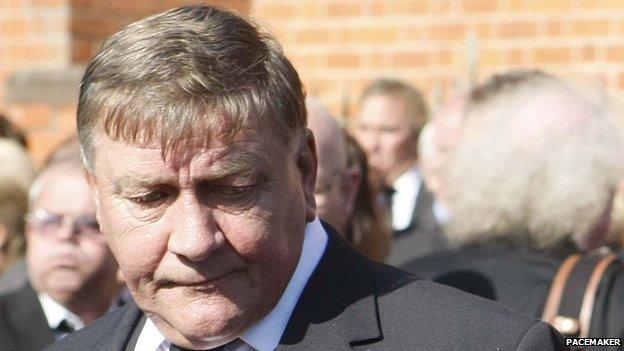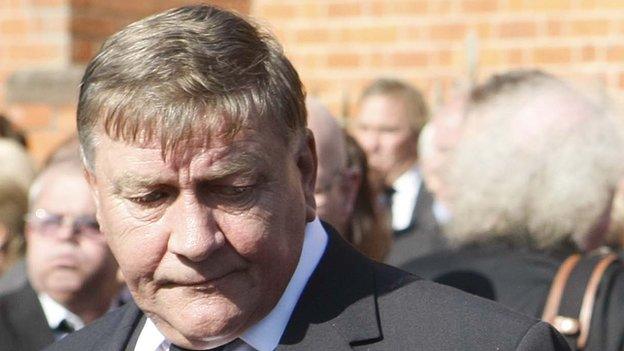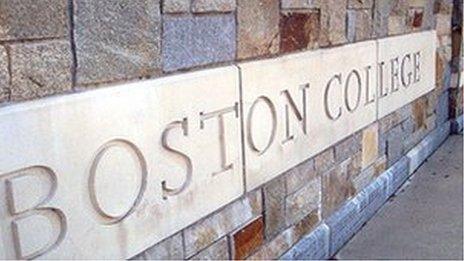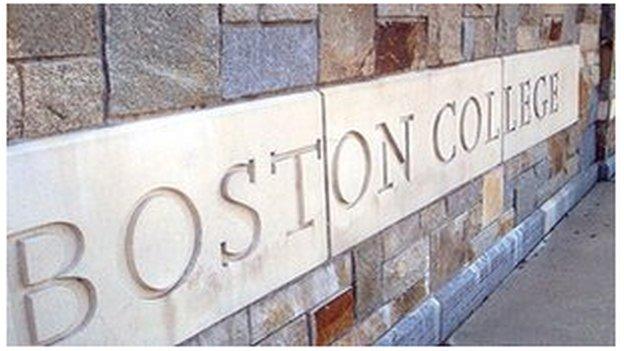Winston 'Winkie' Rea: Police win right to hear Boston tapes
- Published

Winston Rea is among dozens of loyalists and republicans who provided testimonies to Boston College's Belfast Project.
Police have won the right to listen to Boston College interviews by loyalist Winston 'Winkie' Rea.
However, for now, the tapes remain secret to allow for a possible appeal.
On Friday, police brought a bag to court in which to take away the tapes but were told to wait in case Winston Rea's legal team appeals to the Supreme Court.
Mr Rea is among dozens of loyalists and republicans who provided testimonies to Boston College's Belfast Project.

What are the 'Boston tapes'?
Dozens of former paramilitaries were interviewed in Belfast and other cities and towns from 2001-2006 as part of an oral history project known as the Belfast Project.
Details about internal politics and activities of the IRA were revealed on tape, including accounts of a hunger strike in prison in the 1980s.
Overall, the project cost about $200,000 (£118,520), mostly provided by an Irish-American businessman.
Each interview was transcribed, sent by encrypted email to New York and then the material was sent to Boston College, where it was placed under lock and key at Burns Library.
Following a lengthy legal battle with the college, the Police Service of Northern Ireland gained access to a small number of the interviews in 2013.

The interviews were given to researchers compiling an oral history of the Northern Ireland Troubles, on the understanding that tapes would not be made public until after their deaths.
However, in 2013, detectives investigating the 1972 abduction and murder of Belfast mother-of-10 Jean McConville secured the transcripts of former IRA woman Dolours Price's account.
The material was handed over following court battles on both sides of the Atlantic.
In January 2015, Mr Rea, a former prisoner and son-in-law of the late UVF leader Gusty Spence, secured a temporary injunction as police flew out to collect tapes from his interviews.
He is seeking to judicially review the Public Prosecution Service's attempts to obtain his interviews.
He claims that a subpoena for the material is unlawful and lacking in any specifics about why it is being sought.
- Published4 February 2015

- Published22 May 2014

- Published6 May 2014
